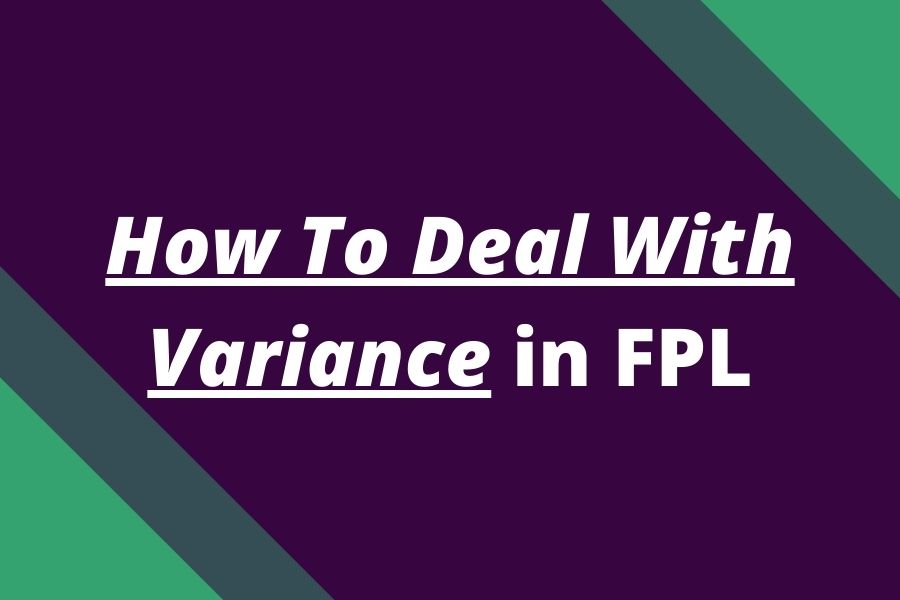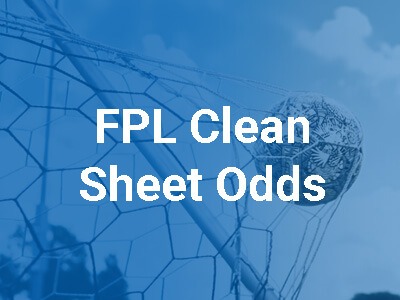In statistical terms, variance measures how far a set of numbers are spread out from their average value. In FPL, variance manifests in the fluctuating performances of players and teams from gameweek to gameweek.
In this article, we will shortly look at the variance in Fantasy Football and how managers could possibly deal with it.
Understanding Variance
Variance is a fundamental concept in statistics. It quantifies the degree of spread in a set of data points. In the context of FPL, consider the weekly scores of a player. Some weeks, they might score a hat-trick and earn a massive haul of points. On other gameweeks, they might barely scrape together a couple of points. This fluctuation in scores is a perfect example of variance.
The Role of Variance in Fantasy Football
Understanding variance can make you more immune to the emotional rollercoaster that Fantasy Premier League can be. Recognizing that player performances can vary greatly from gameweek to gameweek can prevent you from making hasty decisions based on a single gameweek’s performance.
It can also help you set realistic expectations for your team’s performance and prepare for the inevitable ups and downs of the FPL season.
Dealing with Variance (Emotionally) in FPL
While variance adds an element of unpredictability to FPL, there are strategies you can use to manage it. One of the most important is to think long-term. Rather than making knee-jerk reactions based on a single gameweek’s performance, consider a player’s potential for points over several upcoming fixtures. This can help you make more measured, strategic decisions.
Diversification is another effective strategy for managing variance. By selecting players from a variety of teams, you reduce the risk of your FPL team’s performance being severely affected by one team’s poor performance. This can lead to more consistent scoring over longer period however, it can also limit the potential points upside (while protecting points downside).
Read more: Why is Diversification Important in FPL?
As we already mentioned, variance in FPL can cause rollercoaster of emotions. The highs of a successful gameweek can quickly be followed by the lows of a disappointing one. This emotional rollercoaster is a natural part of the game, but managing these emotions effectively is crucial for long-term success in FPL.
1. Maintain your perspective
One way to deal with the emotional impact of variance is to maintain perspective. Remember that FPL is more manageable over the long term, but in the short term, luck can play a significant role. A single gameweek’s performance, whether good or bad, does not define your skill as an FPL manager. It’s important to not get too carried away with the highs or too disheartened by the lows.
Read more: Is FPL Game of Luck or Skill?
2. Focus on process, not the outcome
Another strategy is to focus on the process rather than the outcome. This means focusing on making the best decisions you can with the information available at the time, rather than getting overly fixated on the results.
Sometimes, you can make a good decision and still get a bad outcome, or vice versa. By focusing on the process, you can find satisfaction in knowing that you made the best decision possible with all information available, regardless of the outcome.
3. Practice patience
Finally, it’s important to practice patience. Variance means that results can fluctify in the short term, but over the long term, you have better control over your team’s output. If you’re going through a rough patch, remember that it’s just variance at play, and that things will likely even out over time. Stay patient, stick to your strategy, and trust in your decision-making abilities.
You might be interested in: The Law of Large Numbers and its Role in FPL
Dealing with variance emotionally is just as important as managing it strategically. By maintaining perspective, focusing on the process, and practicing patience, you can navigate the emotional ups and downs of FPL and enjoy the game more.
Read more: Tips to Enjoy FPL Without Sacrificing Your Mental Health
Conclusion
Remember, Fantasy Premier League is a marathon, not a sprint. Embrace the variance, think long-term, and enjoy the rollercoaster ride that is FPL.


![3 Best Captain Picks for FPL GW38 [Captaincy Index] fpl best captain picks](https://www.fantasyfootballreports.com/wp-content/uploads/fpl-best-captain-picks.jpg)

